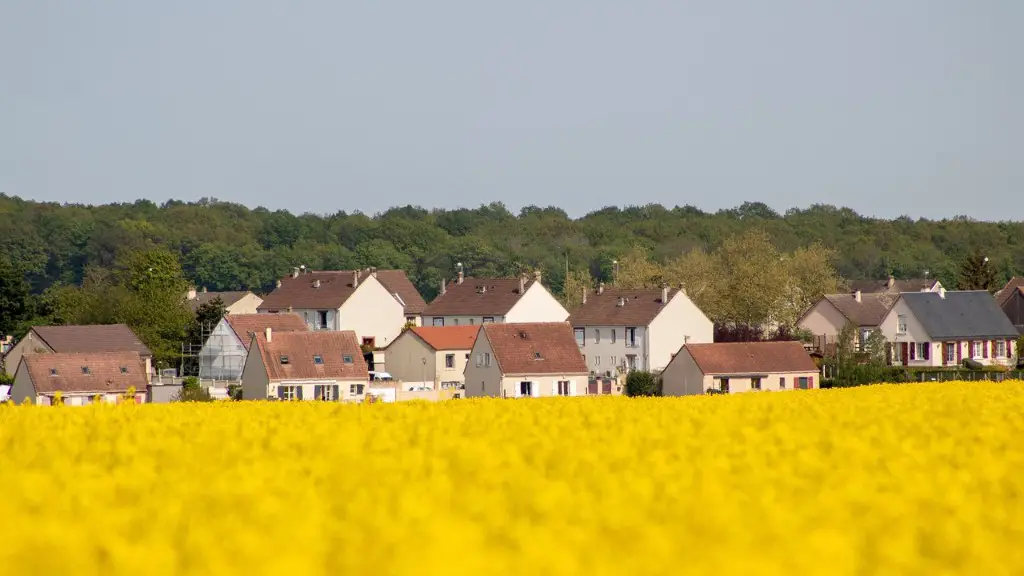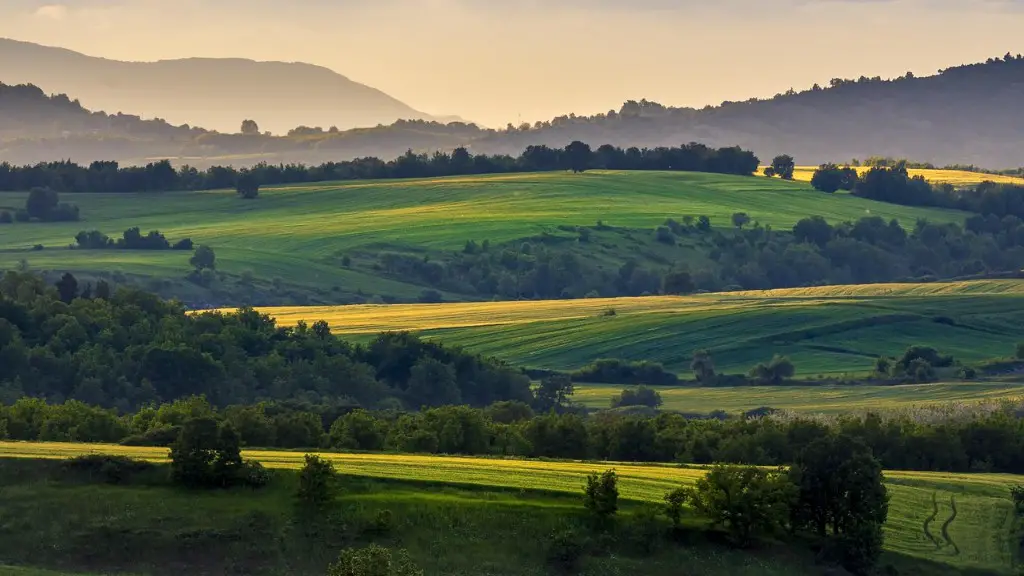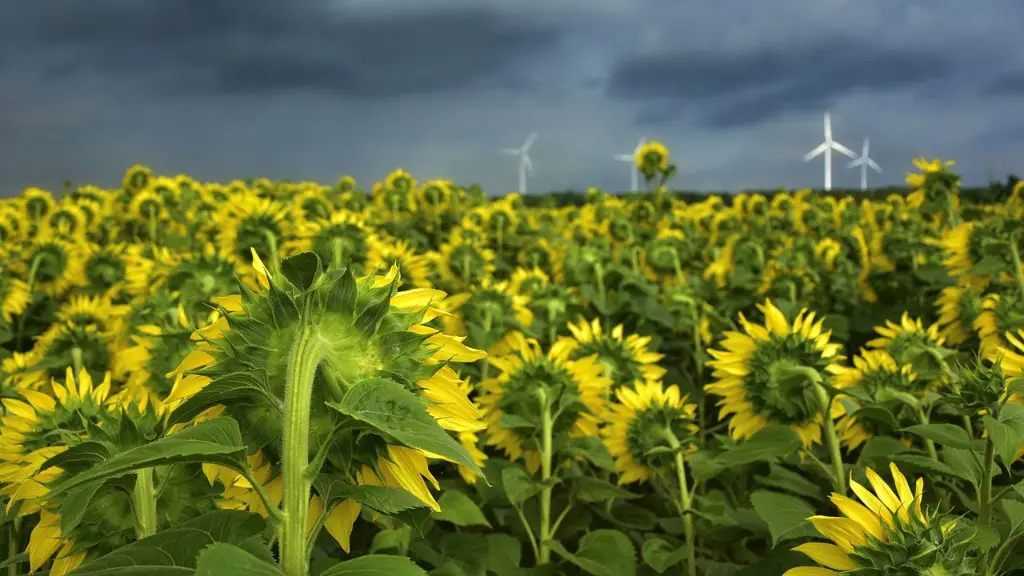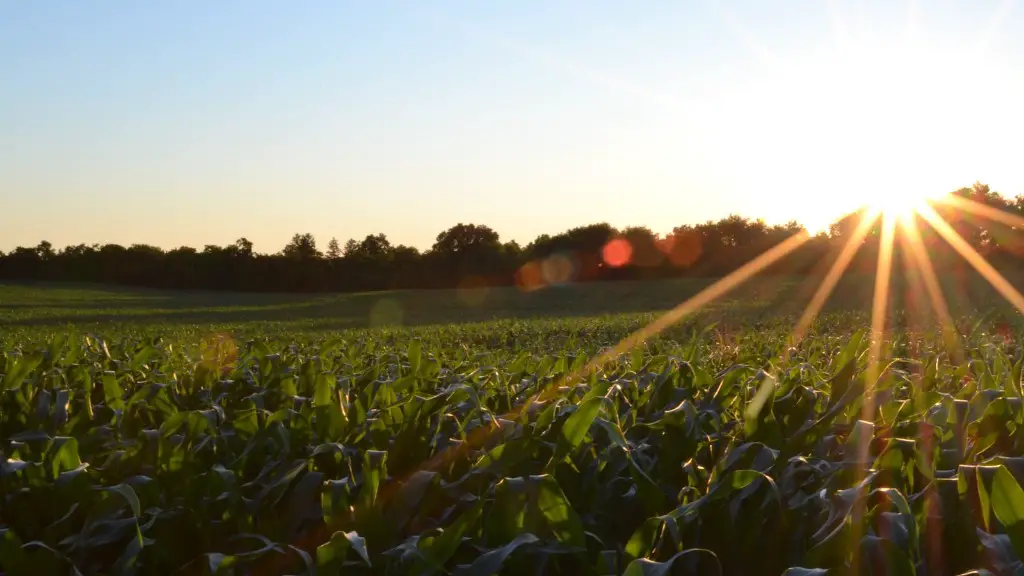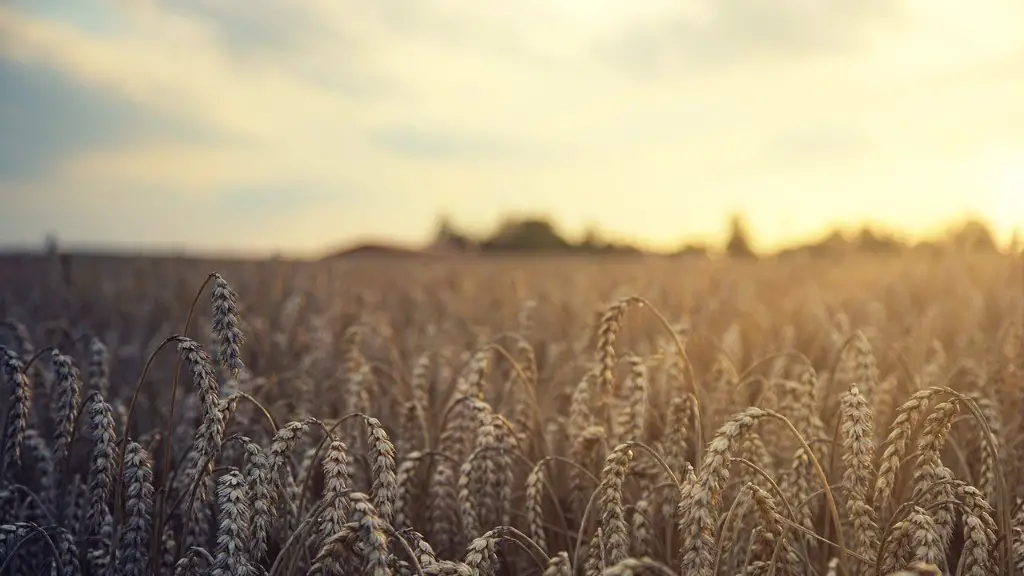The role of agronomy in agriculture is to optimize plant production. This optimization is accomplished through understanding plant growth and soil-plant-water relationships and manipulating these three variables.
Agronomy is the science and technology of producing and using plants for food, fuel, fiber, and land reclamation. It includes the study of how to improve the quality and yield of crops, how to reduce losses from pests and diseases, and how to manage the soil. It also includes the study of how to use water, fertilizer, and other resources efficiently.
How is agronomy important to agriculture?
Agronomy is the science of growing crops and managing soils. It provides farmers with information about how to grow and care for plants in different environments. Factors such as climate, roots, moisture, weeds, pests, fungi, and erosion can all pose significant challenges when farmers attempt to produce a plentiful harvest. By understanding these factors and how they interact with each other, farmers can make informed decisions about how to best care for their crops and soil.
Agronomists play a vital role in food production and food security. They work to ensure that crops are grown in a way that maximizes yield while also protecting the environment. They conduct research to develop new and improved methods of crop production and to identify ways to improve soil health and fertility. Additionally, agronomists work with farmers and other agricultural professionals to provide advice and assistance on best practices for crop production.
Is agronomy a part of agriculture
Agronomy is the science of soil and crop management. It is the core of all agricultural sciences and deals with the management of soil and water with a view to achieving production of high yielding varieties. Agronomy occupies a pivotal position among all the variances in agriculture.
The database of agronomic benefits of biotechnology contains 300 papers and supporting references. The papers are from a variety of disciplines, including agronomy, plant breeding, crop science, and economics. The papers cover a range of topics, including increased yields, lower production costs, improved soil fertility, and reduced use of water.
How do agronomists help farmers?
Agronomists play a vital role in developing and implementing farm practices and technologies that can boost crop yields while also protecting the environment. Their work helps to control pests and weeds, and preserve natural resources.
Agronomy is a branch of agricultural science that deals with the study of crops and the soils in which they grow. It is concerned with the production of plants for food, fuel, and fiber, as well as the management and conservation of natural resources. Agronomists work in a variety of settings, including farms, gardens, parks, and research laboratories.
What is the most important role in agriculture?
Agriculture production is essential for both food and other raw materials for the rural and urban populations. The land is a basic resource for agriculture, and rural or developing areas have lots of it.
However, agriculture faces many challenges, such as climate change, water shortages, and soil degradation. These challenges must be addressed in order to ensure that agriculture can continue to provide for the needs of the world’s population.
Agronomic crops are the foundation of our human food supply, providing essential staple foods like corn, rice, beans, and wheat. These crops are produced on a large scale and play a vital role in meeting our nutritional needs.
What is the relationship of agronomy with agriculture
Agronomy is the science and practice of crop production to produce food, feed, fiber, and fuel. The main goal of agronomy is to optimize the production of crops while minimizing the inputs of energy, labor, and resources. Agronomists use their knowledge of plant science, soil science, and environmental science to develop practical solutions to problems in crop production.
Agronomy is the science and technology of producing and using plants by agriculture for food, fuel, fiber, chemicals, recreation, or land conservation. Agronomy has come to include research of plant genetics, plant physiology, meteorology, and soil science.
What are the activities of agronomy?
Agronomists are an important part of the agricultural industry, as they help farmers to ensure that their crops are healthy and productive. They do this by examining crops for signs of disease, insect or pest problems, weed issues, or problems with the soil. They then use their critical thinking skills to solve these problems, so that the crops can be successfully cultivated, harvested, and protected from pests, weeds, and harsh climates.
There are many branches of agronomy, each specializing in a specific area of study. Weed sciences, for example, focus on the growth and management of vegetation in agricultural fields, natural zones, and in urban and residential areas. Organic farming is another branch of agronomy that specializes in growing plants and animals naturally, without the use of synthetic pesticides or fertilizers. Pomology, olericulture, and viticulture are other branches of agronomy that focus on the cultivation of fruits, vegetables, and grapes, respectively. Arboriculture and landscaping are branches of agronomy that focus on the care and management of trees and other vegetation in both urban and natural settings.
What does an agronomist focus on
An agronomist is a specialist in the field of crop production. They are knowledgeable about all of the variables that are involved in growing crops, including soil and land management, nutrient and water needs, pest control, and minimizing environmental impact. Agronomists work with farmers and other agricultural professionals to ensure that crops are grown in an efficient and sustainable way.
An agronomist is a scientist who studies the science of crops and soil. They work with farmers to help them improve their farm’s efficiency by developing techniques to improve crop yields and reducing soil best management practices.
What is the difference between agronomy and agriculture?
Agronomy looks at agriculture from an integrated, holistic perspective. This means that agronomists consider the entire ecosystem when making decisions about crops and land use. Agronomists are experts in crop and soil science, as well as ecology. This combination of skills makes them uniquely qualified to understand how different agricultural practices impact the environment.
Agriculture is an important sector of the economy and it plays a vital role in the development of a country. It creates employment opportunities for the people and helps in the diversification of the economy. It is also a source of foreign exchange for the country and helps in the food security of the country. It supplies raw materials to other industries which helps in the growth of those industries.
What are 5 important of agriculture
Agriculture provides most of the world’s food and fabrics. Cotton, wool, and leather are all agricultural products. Agriculture also provides wood for construction and paper products. These products, as well as the agricultural methods used, may vary from one part of the world to another.
It is important for agricultural workers to possess certain specific qualities in order to be successful in their roles. Some of these qualities include dexterity, strength, mechanical skills, and the ability to listen well.
Final Words
Agronomy is the science of using plants for food, fuel, fiber, and land reclamation. It covers a wide range of topics such as plant breeding, crop rotation, irrigation, and pesticide management.
Agronomy is the study and application of soil, water, and plant science to land management and food production. It helps us to understand how to use resources more efficiently and how to better manage crop production systems. In doing so, agronomy plays a critical role in ensuring food security and sustainability.
